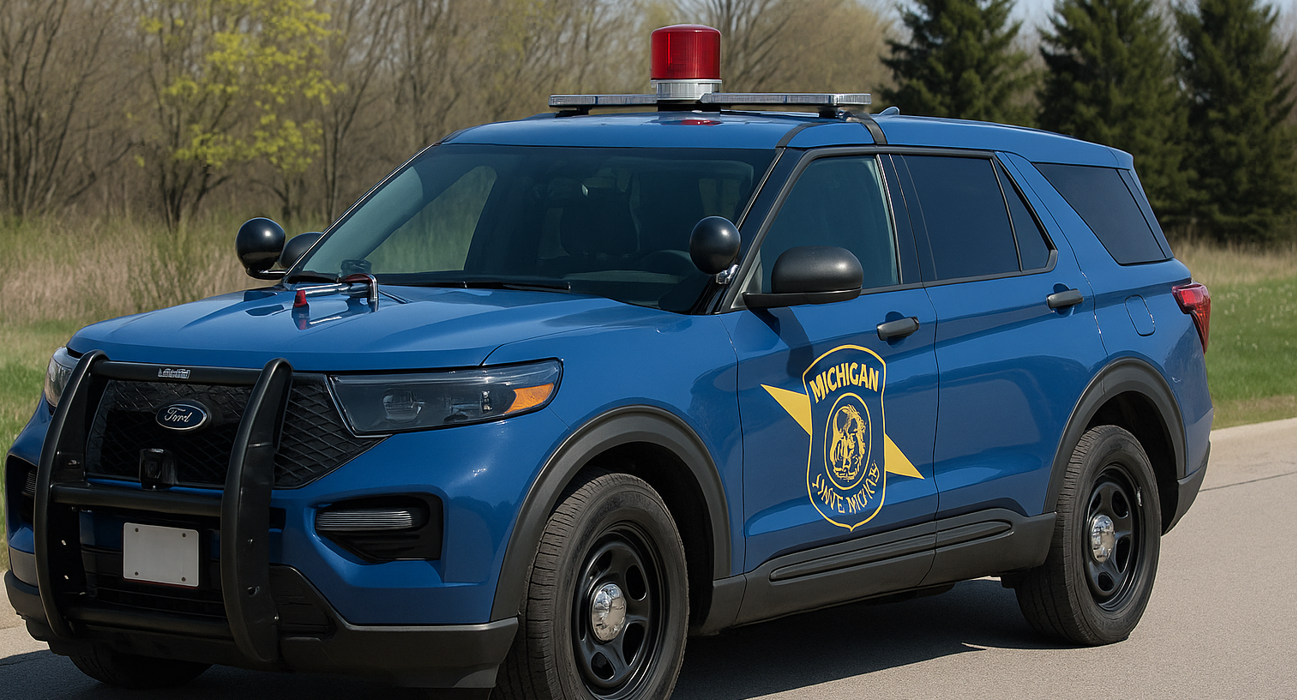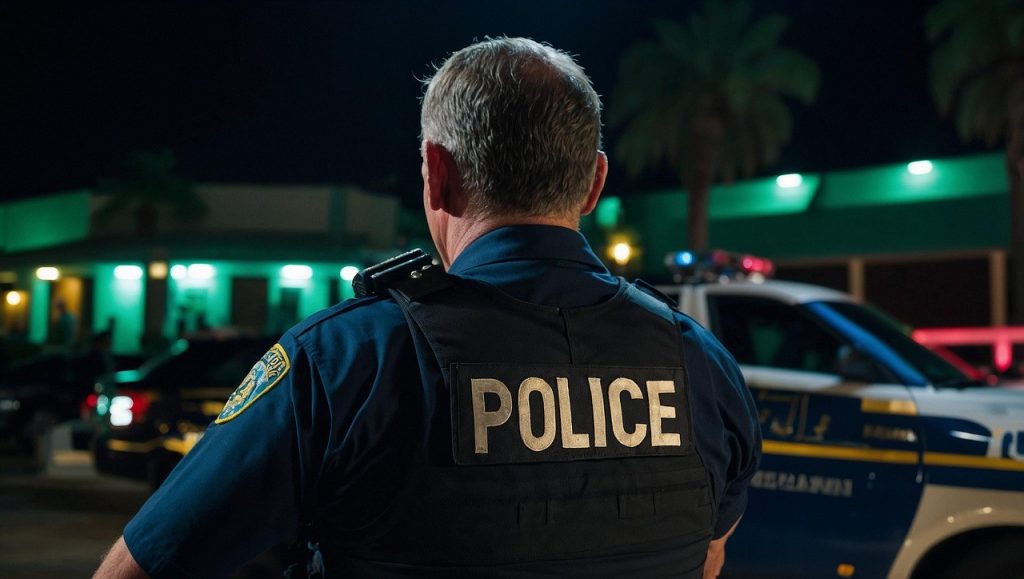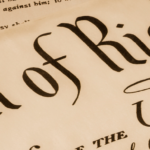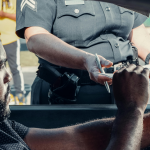Know Your Rights During Police Traffic Stops
What to Do If Stopped by the Police: Essential Information Every Driver Should Know

It Sucks to Get Pulled Over By the Police. Avoid Mistakes That Can Make Things Worse
Getting pulled over can be a nerve-wracking experience for anyone. The flashing lights in your rearview mirror, the uncertainty of what might happen next, and the authority that police officers command can make even the most law-abiding citizens anxious. However, knowing your legal rights during a police traffic stop empowers you to navigate these encounters safely and effectively.
The Right to Remain Silent
When an officer approaches your vehicle, they’ll likely ask you questions beyond requesting your license and registration. Common questions include “Where are you coming from?” or “Where are you headed?” What many drivers don’t realize is that you’re not legally obligated to answer these questions.
The Fifth Amendment protects your right to remain silent during police encounters. You can politely decline to answer by simply stating, “I’m respectfully exercising my right to remain silent.” Declining to answer questions isn’t being uncooperative—it’s exercising a constitutional right.
Remember that anything you say can potentially be used to build a case against you. If an officer already has grounds to cite or arrest you, talking won’t change that fact. If they don’t, your answers might inadvertently provide the evidence they need.
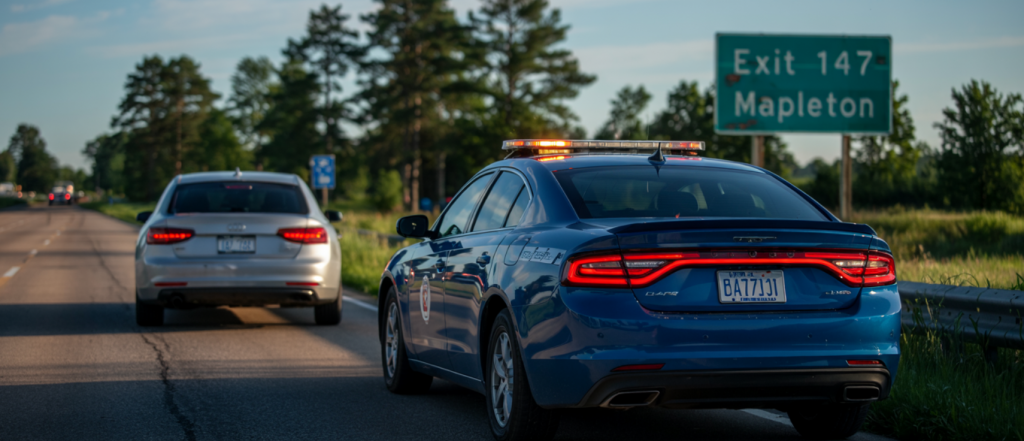
Protecting Your Digital Privacy
In today’s digital age, your smartphone contains an incredible amount of personal information. It is essential that you know your rights during a police traffic stop because the police might ask you to unlock your phone. You are not required to comply with this request.
Law enforcement officers cannot legally demand to view your phone’s contents—including photos, videos, texts, or call logs—without a warrant. To protect your digital privacy:
- Use a PIN code rather than biometric unlocks like face recognition or fingerprints
- Politely but firmly decline requests to unlock or hand over your device
- State clearly: “I do not consent to searches of my digital devices.”
Your phone is essentially a window into your entire life, and maintaining its privacy during a traffic stop is a legitimate legal right.
Refusing Searches of Your Vehicle During Police Traffic Stops
One of the most important rights you have during a traffic stop is the ability to refuse searches of your vehicle or belongings. Unless police have:
- A valid search warrant
- Probable cause (seeing contraband in plain view)
- Reasonable suspicion that you’re armed and dangerous
They cannot legally search your car without your consent. If an officer asks, “Mind if I take a look around your car?” you can firmly state, “I do not consent to any searches.” Make this statement clear enough that someone can hear it in any recording of the interaction.
Even if officers proceed with a search despite your objection, having voiced your non-consent could help challenge the legality of the search later in court. Remember that consenting to a search gives officers broad permission, while requiring them to obtain a search warrant forces them to specify exactly what they’re looking for.
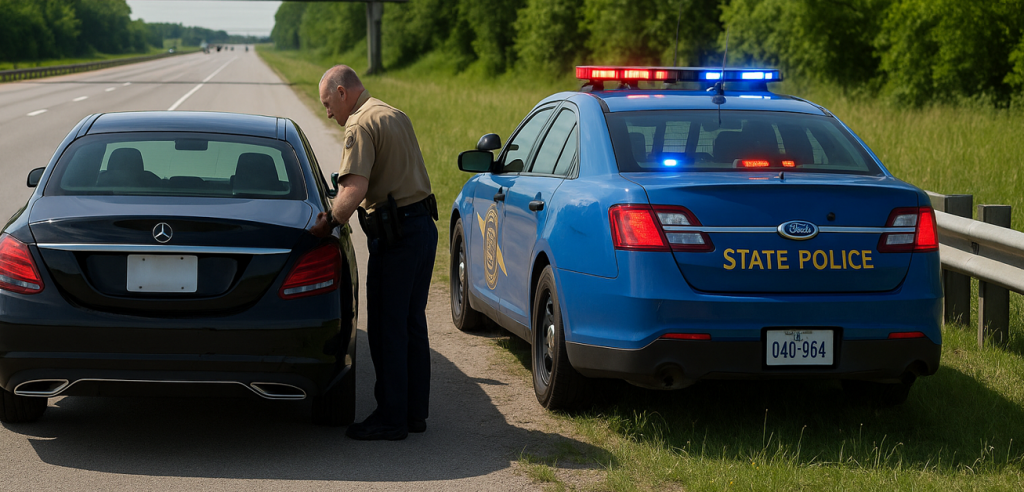
Field Sobriety and Roadside Breath Tests During Police Traffic Stops
Contrary to popular belief, roadside breathalyzer tests and field sobriety tests (like walking in a straight line or standing on one leg) are optional in most states during an initial traffic stop. Before an arrest, you can legally decline these preliminary tests.
If you refuse, officers must make an arrest decision based solely on their observations, such as driving behavior or physical appearance. Without additional evidence from these tests, they may not have sufficient grounds for an arrest.
However, it’s important to note that if you are formally arrested on suspicion of OWI or drunk driving, refusing further chemical testing at that point may carry automatic penalties under implied consent laws in many states.
Knowing When You’re Free to Leave
Once an officer has completed the purpose of the traffic stop, such as issuing a citation for the original violation, the detention should end. You aren’t required to stick around for additional questioning or investigation unrelated to the reason the officer stopped you.
A simple way to determine if you’re free to leave is by politely asking, “Am I free to go now?” If the answer is yes, you should leave promptly. Some officers may try to extend stops to look for evidence of other crimes, but courts have ruled that unnecessarily prolonging traffic stops without reasonable suspicion is unconstitutional.

The Importance of Professional Legal Representation
If you’ve had an encounter with law enforcement that resulted in felony or misdemeanor charges or if officers potentially violated your rights during a traffic stop, your best hope of avoiding a criminal charge or securing a favorable outcome is with the team of highly experienced criminal defense lawyers at LEWIS & DICKSTEIN, P.L.L.C. Our attorneys understand the nuances of search and seizure law, constitutional protections, and how to challenge evidence obtained through improper police procedures effectively. Don’t face the complex legal system alone. Having knowledgeable advocates on your side can make all the difference in protecting your freedom and future.
Call us today at (248) 263-6800 for a free consultation or complete an online Request for Assistance Form. We will contact you promptly and find a way to help you.

